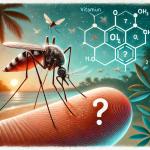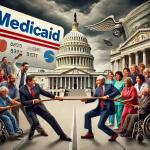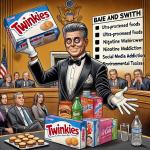“Scientists Found A Scary Link Between Tap Water & Cancer
Harm Reduction
With the arrival of mosquito season—and, consequently, the increase in bites and a persistent buzzing that disrupts sleep—there’s no better time to understand our insect enemy.
Suicide is often a behavior of “opportunity.” Given the motivation, having the wherewithal to kill oneself creates an unfortunate opportunity.
On February 15, 2025, H.R.415, “To Prohibit the Environmental Protection Agency from using assessments generated by t
Providing informed consent is a bedrock of ethical medical practice -- and a physician’s failure to provide proper informed consent is grounds for legal action. But, determining what constitutes proper informed consent is nuanced.
What It Is and Who It Helps
A new study in JAMA Network Open looks at the supplement market, focusing on products that display the word immune or immunity in its labeling.
Once upon a time, the operative report was a surgeon’s record of what happened in the OR—a document dictating billing and could make or break a malpractice case.












